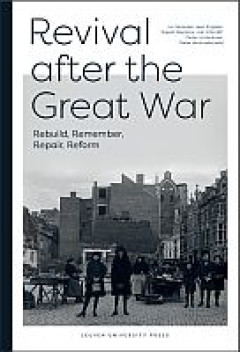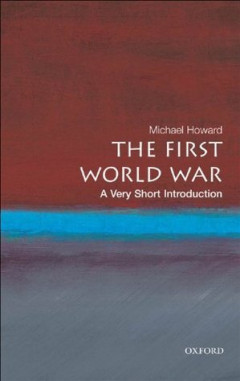Ditapis dengan

E-book Revival After the Great War: Rebuild, Remember, Repair, Reform
In the months and years immediately following the First World War, the many (European) countries that had formed its battleground were confronted with daunting challenges. These challenges varied according to the countries' earlier role and degree of involvement in the war but were without exception enormous. The contributors to this book analyse how this was not only a matter of rebuilding rav…
- Edisi
- -
- ISBN/ISSN
- 9789462702509
- Deskripsi Fisik
- 380 halaman
- Judul Seri
- -
- No. Panggil
- 940.3 VER r

E-book The First World War: A Very Short Introduction
By the time the First World War ended in 1918, eight million people had died in what had been perhaps the most apocalyptic episode the world had known. This Very Short Introduction provides a concise and insightful history of the 'Great War', focusing on why it happened, how it was fought, and why it had the consequences it did.It examines the state of Europe in 1914 and the outbreak of war; th…
- Edisi
- -
- ISBN/ISSN
- 9780199205592
- Deskripsi Fisik
- 161 halaman
- Judul Seri
- -
- No. Panggil
- 940.3 HOW t 002851-eB-0122
E-book Civilian Specialists at War : Britain’s Transport Experts and the Fi…
ooking back upon the operations of 1916, and in anticipation of the battles to come, the French prime minister, Aristide Briand, remarked that military offensives had become ‘really like a great industrial undertaking. There were so many miles of front, so many troops, and so many guns required; all had to be calculated to a nicety, and all kinds of preparations made’.1 In the…
- Edisi
- -
- ISBN/ISSN
- 9781909646926
- Deskripsi Fisik
- 446 hlm
- Judul Seri
- -
- No. Panggil
- 940.3 PHI c
E-book Afterlives of War : A Descendants' History
ost descendants grow up with a ‘lived history’ of the war in the family before they possess a ‘learned history’.7 When I began interviewing British descendants, I was initially taken aback by how little they knew about what their mothers and fathers did during the war. Some turned to fiction to fill in the gaps. Rosemary Game’s father was a tunnell…
- Edisi
- -
- ISBN/ISSN
- 9781526154033
- Deskripsi Fisik
- 369 hlm
- Judul Seri
- -
- No. Panggil
- 940.3 ROP a
 Karya Umum
Karya Umum  Filsafat
Filsafat  Agama
Agama  Ilmu-ilmu Sosial
Ilmu-ilmu Sosial  Bahasa
Bahasa  Ilmu-ilmu Murni
Ilmu-ilmu Murni  Ilmu-ilmu Terapan
Ilmu-ilmu Terapan  Kesenian, Hiburan, dan Olahraga
Kesenian, Hiburan, dan Olahraga  Kesusastraan
Kesusastraan  Geografi dan Sejarah
Geografi dan Sejarah